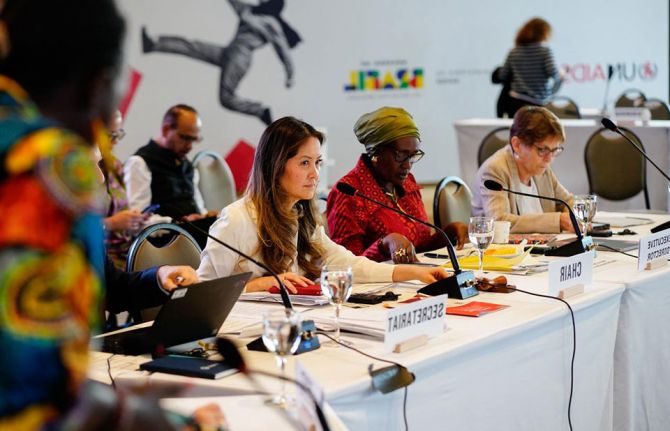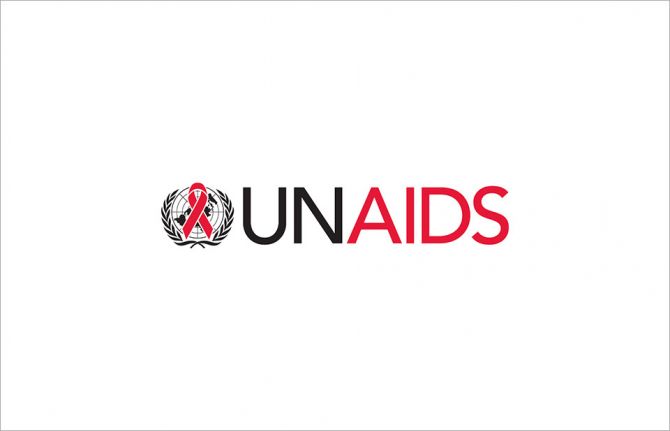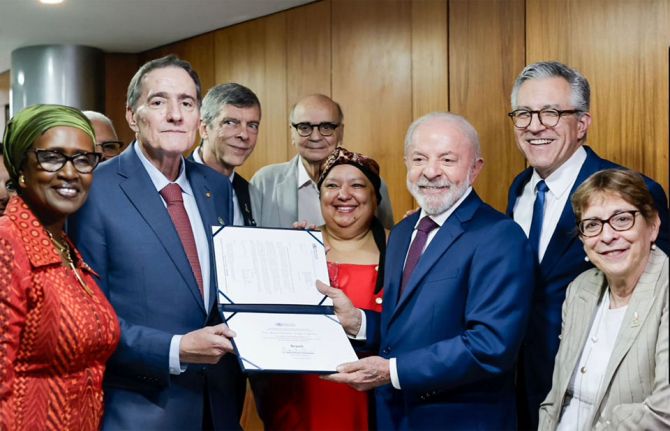
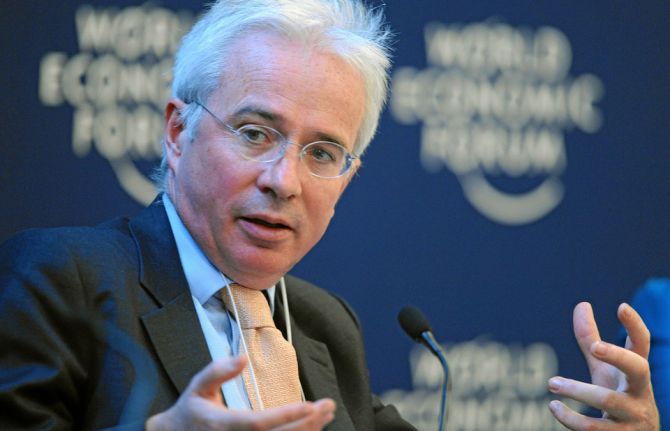
Press Statement
UNAIDS welcomes appointment of Peter Sands as Executive Director of the Global Fund to Fight AIDS, Tuberculosis and Malaria
14 November 2017 14 November 2017GENEVA, 14 November 2017—UNAIDS welcomes the appointment of Peter Sands as the new Executive Director of the Global Fund to Fight AIDS, Tuberculosis and Malaria (Global Fund).
“The Global Fund is a critical partner for UNAIDS,” said Michel Sidibé, Executive Director of UNAIDS. “Mr Sands has the experience, leadership and vision needed to do the job and I very much look forward to working with him to improve the lives of millions of people around the world.”
UNAIDS has worked closely with the Global Fund since its inception in 2002. UNAIDS leverages its relationships and partnerships to assist countries in securing Global Fund resources, implementing grant programmes and overcoming bottlenecks. The Global Fund, in collaboration with other donors and governments, secures the resources to implement effective responses to HIV, tuberculosis and malaria.
Together, UNAIDS and the Global Fund have ensured that millions of people living with HIV have access to treatment and that people most affected by the epidemic have the health and support services they need.
UNAIDS
The Joint United Nations Programme on HIV/AIDS (UNAIDS) leads and inspires the world to achieve its shared vision of zero new HIV infections, zero discrimination and zero AIDS-related deaths. UNAIDS unites the efforts of 11 UN organizations—UNHCR, UNICEF, WFP, UNDP, UNFPA, UNODC, UN Women, ILO, UNESCO, WHO and the World Bank—and works closely with global and national partners towards ending the AIDS epidemic by 2030 as part of the Sustainable Development Goals. Learn more at unaids.org and connect with us on Facebook, Twitter, Instagram and YouTube.
Press centre
Download the printable version (PDF)

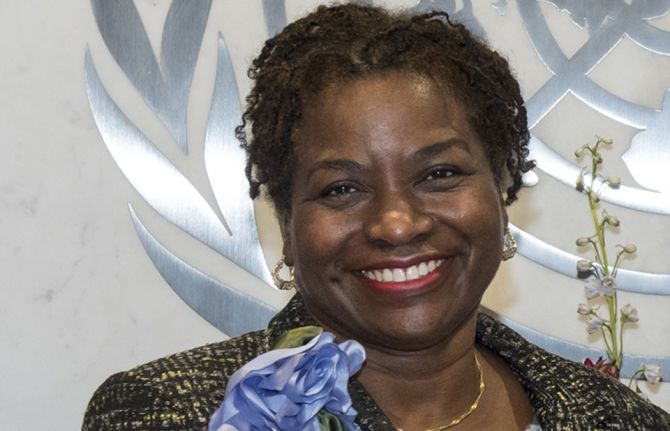
Press Statement
UNAIDS welcomes appointment of Natalia Kanem as Executive Director of UNFPA
05 October 2017 05 October 2017GENEVA, 5 October 2017—UNAIDS welcomes the appointment by the United Nations Secretary-General of Natalia Kanem as the Executive Director of the United Nations Population Fund (UNFPA).
“As part of the Joint United Nations Programme on HIV/AIDS, the United Nations Population Fund’s work is critical in meeting the reproductive health needs of women and adolescents,” said Michel Sidibé, Executive Director of UNAIDS. “I look forward to working closely with Ms Kanem. Her experience in public health, her strong leadership and her commitment to social justice will be invaluable in our efforts to end AIDS as a public health threat.”
UNFPA is the lead United Nations agency for delivering a world where every pregnancy is wanted, every childbirth is safe and every young person's potential is fulfilled. UNFPA’s response to HIV is integral to its goals of achieving universal access to sexual and reproductive health and ending gender-based violence. UNFPA promotes integrated HIV and sexual and reproductive health services for young people, key populations, and women and girls, including people living with HIV.
As part of UNFPA’s work on HIV prevention, Ms Kanem is co-convening a meeting of the Global Prevention Coalition with Mr Sidibé to finalize work on the HIV Prevention 2020 Road Map, a road map to accelerate HIV prevention efforts and reduce new HIV infections by 75% by 2020.
UNFPA is one of UNAIDS’ 11 Cosponsors working to end the AIDS epidemic as part of the Sustainable Development Goals. UNFPA is also part of the H6 partnership, which pulls together the collective strengths and distinct capacities of six United Nations agencies, related organizations and programmes to improve the health and save the lives of women and children around the world.
UNAIDS
The Joint United Nations Programme on HIV/AIDS (UNAIDS) leads and inspires the world to achieve its shared vision of zero new HIV infections, zero discrimination and zero AIDS-related deaths. UNAIDS unites the efforts of 11 UN organizations—UNHCR, UNICEF, WFP, UNDP, UNFPA, UNODC, UN Women, ILO, UNESCO, WHO and the World Bank—and works closely with global and national partners towards ending the AIDS epidemic by 2030 as part of the Sustainable Development Goals. Learn more at unaids.org and connect with us on Facebook, Twitter, Instagram and YouTube.
Press centre
Download the printable version (PDF)

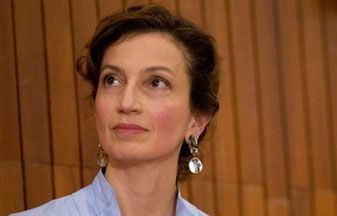
Press Statement
UNAIDS welcomes nomination by UNESCO of Audrey Azoulay as new Director-General
16 October 2017 16 October 2017GENEVA, 16 October 2017—UNAIDS warmly welcomes the nomination by the Executive Board of the United Nations Educational, Cultural and Scientific Organization (UNESCO) of Audrey Azoulay as its new Director-General.
“Audrey Azoulay’s commitment to promote respect for diversity, gender equality and access to education and culture will be invaluable in her new role. They are values we share,” said Michel Sidibé, Executive Director of UNAIDS. “UNAIDS looks forward to working closely with Ms Azoulay and UNESCO to further strengthen our engagement with the education, scientific and cultural sectors as part of our joint efforts to end AIDS by 2030.”
UNESCO was founded in 1945 with the mission of contributing to peace and security by promoting international collaboration through education, science and culture. UNESCO is one of UNAIDS’ 11 cosponsoring organizations and leads efforts to support countries in scaling up the education sector response to HIV.
Education is essential to an effective response to HIV and contributes to fostering economic growth, reducing poverty and improving general health. Education has the capacity to transform lives and enable people to thrive in their environment, take healthy decisions and build a more just, inclusive, safe and sustainable world. The role of the education sector includes providing the knowledge, skills, attitudes and values that can contribute to safer behaviours, eliminate stigma and discrimination, seek treatment and enable them to stay healthy and free from HIV.
UNAIDS
The Joint United Nations Programme on HIV/AIDS (UNAIDS) leads and inspires the world to achieve its shared vision of zero new HIV infections, zero discrimination and zero AIDS-related deaths. UNAIDS unites the efforts of 11 UN organizations—UNHCR, UNICEF, WFP, UNDP, UNFPA, UNODC, UN Women, ILO, UNESCO, WHO and the World Bank—and works closely with global and national partners towards ending the AIDS epidemic by 2030 as part of the Sustainable Development Goals. Learn more at unaids.org and connect with us on Facebook, Twitter, Instagram and YouTube.
Press centre
Download the printable version (PDF)

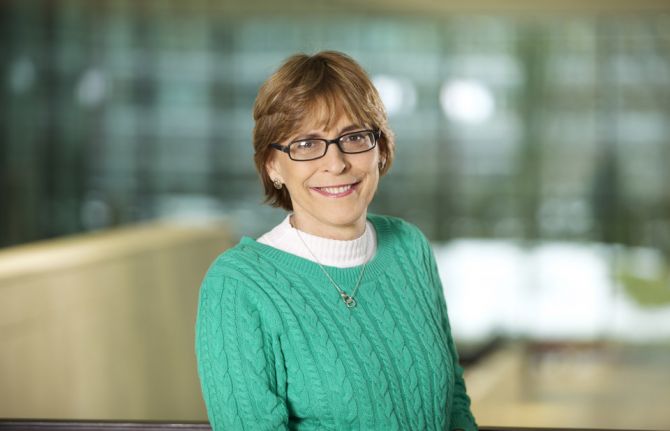
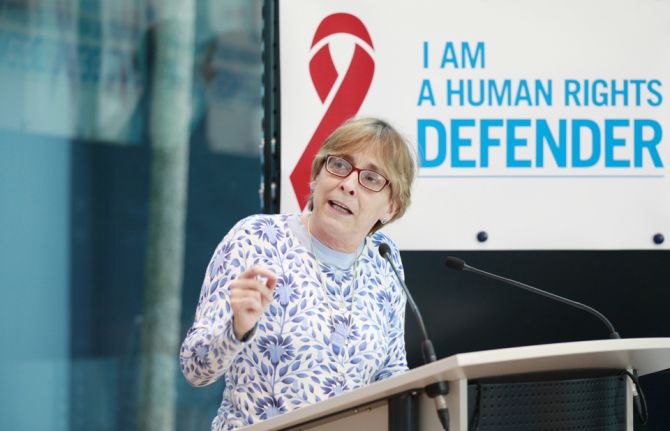
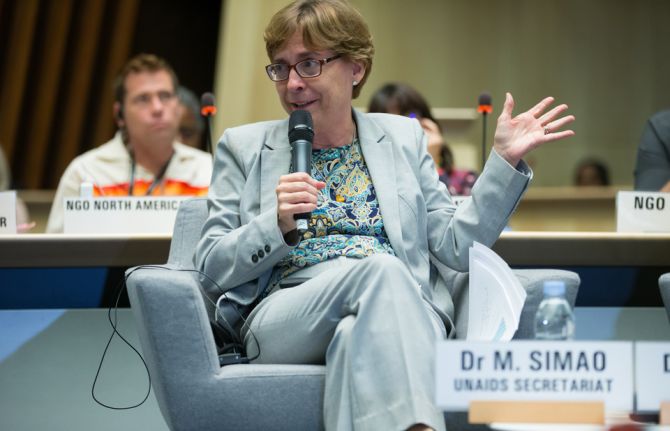
Press Statement
UNAIDS congratulates Mariangela Simão on her appointment as Assistant Director-General at the World Health Organization
03 October 2017 03 October 2017GENEVA, 3 October 2017—UNAIDS warmly congratulates Mariângela Batista Galvão Simão on her appointment as the Assistant Director-General for Drug Access, Vaccines and Pharmaceuticals at the World Health Organization (WHO).
“Mariangela is driven by a steadfast commitment to put people at the centre,” said Michel Sidibé, Executive Director of UNAIDS. “She is a passionate advocate for human rights and I look forward to continuing to work with her to ensure that no one is left behind in access to medicines.”
Ms Simão has worked for UNAIDS since 2010, serving as the Director of Rights, Gender, Prevention and Community Mobilization. She has been instrumental in developing policies and guidance on the impact of HIV-related stigma and discrimination in health systems, HIV prevention among adolescent girls and young women, human rights and HIV, ending overly broad criminalization of HIV transmission and partnerships with civil society.
UNAIDS would also like to congratulate Bernhard Schwartländer on his appointment as the new Chef de Cabinet at WHO. Mr Schwartländer held a number of positions with UNAIDS, including Director of Evaluation and Strategic Information until 2012.
“These two excellent leaders will bring energy, determination and a focus on delivering results for people everywhere,” said Mr Sidibé. “I am proud of their achievements and wish them well in their new roles.”
WHO is one of UNAIDS’ 11 Cosponsors advancing progress in global health towards ending the AIDS epidemic as part of the Sustainable Development Goals.
UNAIDS
The Joint United Nations Programme on HIV/AIDS (UNAIDS) leads and inspires the world to achieve its shared vision of zero new HIV infections, zero discrimination and zero AIDS-related deaths. UNAIDS unites the efforts of 11 UN organizations—UNHCR, UNICEF, WFP, UNDP, UNFPA, UNODC, UN Women, ILO, UNESCO, WHO and the World Bank—and works closely with global and national partners towards ending the AIDS epidemic by 2030 as part of the Sustainable Development Goals. Learn more at unaids.org and connect with us on Facebook, Twitter, Instagram and YouTube.
Press centre
Download the printable version (PDF)

Press Statement
UNAIDS congratulates Lesotho and Uganda for progress towards achieving their Fast-Track Targets
20 September 2017 20 September 2017GENEVA/NEW YORK, 20 September 2017—UNAIDS congratulates Lesotho and Uganda on the progress made towards ending AIDS shown in their respective Population-Based HIV Impact Assessments (PHIAs).
According to the new Lesotho PHIA results, HIV viral load suppression—a key marker indicating that the body is successfully suppressing the virus—has reached 68% among all adults living with HIV between the ages of 15 and 59 years. People living with HIV with suppressed viral loads live longer, have fewer complications due to HIV and are less likely to transmit the virus. The findings suggest that Lesotho is on track to achieve the 90–90–90 targets by 2020, whereby 90% of people living with HIV know their status, 90% of people who know their status are accessing treatment and 90% of people on treatment are virally suppressed.
The Uganda PHIA results indicate that 60% of adults living with HIV between the ages of 15 and 64 years are virally suppressed. The results demonstrate that Uganda is making steady progress towards its national goal of reaching 73% viral load suppression among adults living with HIV between the ages of 15 and 49 years by 2020. Uganda’s epidemic has stabilized in part due to increases in the coverage of voluntary medical male circumcision for HIV prevention and the expansion of HIV treatment, including for pregnant women living with HIV.
“The Population-Based HIV Impact Assessment studies demonstrate that by committing to the 90–90–90 targets countries are making progress faster,” said UNAIDS Executive Director Michel Sidibé. “Working together with the United States President’s Emergency Plan for AIDS Relief and partners, Lesotho and Uganda are saving lives and getting on track to ending AIDS.”
In addition to the Lesotho and Uganda surveys, similar data from Malawi, Swaziland, Zambia and Zimbabwe were gathered through nationally representative household surveys, in collaboration with local governmental and nongovernmental partners, in 2016. The surveys for Lesotho and Uganda were conducted with funding from the United States President’s Emergency Plan for AIDS Relief (PEPFAR) and assistance from the United States Centers for Disease Control and Prevention and ICAP at Columbia University’s Mailman School of Public Health.
UNAIDS thanks the United States of America for its commitment to the global AIDS response. On 19 September 2017, PEPFAR released its new Strategy for Accelerating HIV/AIDS Epidemic Control (2017–2020). The strategy reaffirms the United States Government’s leadership and commitment to support the response to HIV in more than 50 countries and is in line with the Fast-Track Targets.
UNAIDS
The Joint United Nations Programme on HIV/AIDS (UNAIDS) leads and inspires the world to achieve its shared vision of zero new HIV infections, zero discrimination and zero AIDS-related deaths. UNAIDS unites the efforts of 11 UN organizations—UNHCR, UNICEF, WFP, UNDP, UNFPA, UNODC, UN Women, ILO, UNESCO, WHO and the World Bank—and works closely with global and national partners towards ending the AIDS epidemic by 2030 as part of the Sustainable Development Goals. Learn more at unaids.org and connect with us on Facebook, Twitter, Instagram and YouTube.
Press centre
Download the printable version (PDF)

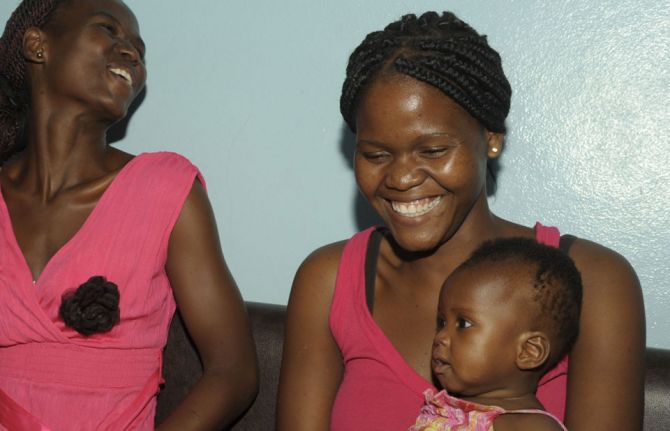
Press Statement
UNAIDS congratulates Kingdom of Swaziland on achieving over 73% viral load suppression among adults living with HIV and a major reduction in HIV incidence between 2011 and 2016
24 July 2017 24 July 2017New study shows results delivered thanks to focused efforts in collaboration with United States President’s Emergency Plan for AIDS Relief
MBABANE/GENEVA, 24 July 2017—UNAIDS congratulates the Kingdom of Swaziland on the findings of the Swaziland HIV Incidence Measurement Survey (SHIMS 2) announced by Prime Minister Barnabas Sibusiso Dlamini today in Mbabane, Swaziland that 73% of the adult population aged 15 years and older are virally suppressed—76% of adult women and 68% of adult men. The survey, part of the Population-based HIV Impact Assessments (PHIA), was conducted with funding from United States President’s Emergency Plan for AIDS Relief (PEPFAR).
“Swaziland has demonstrated to the world that shared responsibility and global solidarity produces results,” said UNAIDS Executive Director, Michel Sidibé. “Working together with PEPFAR and partners, Swaziland is saving lives and on track to control the epidemic.”
SHIMS 2 findings on, viral load suppression among adults of 15 years and older of 73% affirms UNAIDS estimates of 68% [54%–77%]. Compared to the 2011 SHIMS1 survey which had a similar design, the survey results suggest that the rate of new HIV infections among adults (ages 18-49 years) has decreased by half from 2.5% in 2011 to 1.4% in 2016 (2.0% for adult women and 0.9% for adult men). This is similar to the decline in incidence among adult ages 15-49 as published by UNAIDS: from 2.5% [2.3%–2.6%] in 2011 to 1.7% [1.4%–2.0%] in 2016.
In 2016, UNAIDS estimated that 220 000 [200 000—230 000] people were living with HIV in Swaziland, and that new HIV infections were reduced from 12 000 [12 000—13 000] in 2011 to 8800 [7300—11 000] in 2016. Prevention of mother to child coverage in Swaziland has been between 90 and 100% since 2011 and was estimated to be 95% [81%–>95%] in 2016. As a result fewer than 1000 children became infected with HIV in Swaziland in 2016.
“UNAIDS welcomes the Swaziland PHIA results as further affirmation of the validity and accuracy of our modelling estimates.” said Mr Sidibé.
The data from the SHIMS2 are part of the PHIA, funded by PEPFAR and conducted by the U.S. Centers for Disease Control and Prevention (CDC) and ICAP at Columbia University’s Mailman School of Public Health. In addition to the Swaziland survey, similar data from Malawi, Zambia and Zimbabwe were gathered through critical household surveys, in collaboration with local governmental and non-governmental partners in 2016.
UNAIDS congratulates PEPFAR for their unwavering commitment to the global AIDS response. PEPFAR works with more than 50 countries, to maintain access to life-saving treatment, provide services for orphans and vulnerable children, ensure that the most vulnerable and key populations have access to services to prevent and treat HIV and accelerate progress toward the end of the AIDS epidemic.
UNAIDS
The Joint United Nations Programme on HIV/AIDS (UNAIDS) leads and inspires the world to achieve its shared vision of zero new HIV infections, zero discrimination and zero AIDS-related deaths. UNAIDS unites the efforts of 11 UN organizations—UNHCR, UNICEF, WFP, UNDP, UNFPA, UNODC, UN Women, ILO, UNESCO, WHO and the World Bank—and works closely with global and national partners towards ending the AIDS epidemic by 2030 as part of the Sustainable Development Goals. Learn more at unaids.org and connect with us on Facebook, Twitter, Instagram and YouTube.

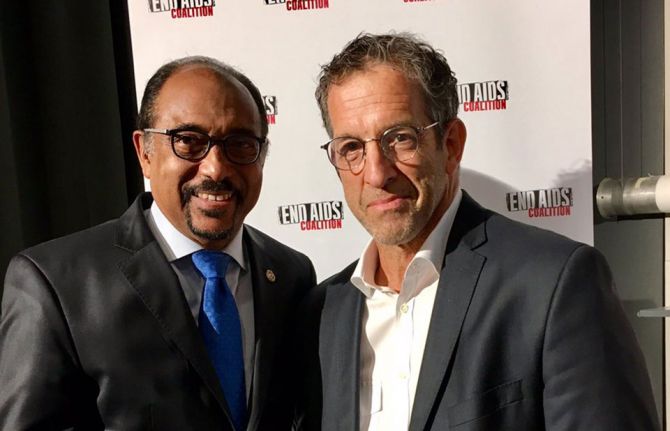
Press Statement
UNAIDS welcomes the launch of the End AIDS Coalition at the 9th International AIDS Conference on HIV Science in Paris
25 July 2017 25 July 2017PARIS/GENEVA, 25 July 2017—UNAIDS has welcomed the launch of the End AIDS Coalition (EAC) during the 9th International AIDS Conference on HIV Science taking place in Paris, France. The EAC brings together a strong collaboration of leading AIDS experts, scientists, clinicians, policy-makers, faith leaders, business leaders and activists determined to end the AIDS epidemic as a public health threat by 2030.
The EAC aims to amplify efforts to end the AIDS epidemic by strengthening linkages across research, resources and implementation, by encouraging the aggregation and analysis of data from the global AIDS response to identify barriers and encourage efficiencies and by inspiring a movement to mobilize and engage the next generation of young leaders in the response to HIV.
The founder of the End AIDS Coalition is the American fashion designer and amfAR chair, Kenneth Cole, who is also a UNAIDS International Goodwill Ambassador. Speaking at the launch, Mr Cole said the world was at a tipping point in the response to the HIV epidemic and stressed the need for all actors to join together to gain control of the epidemic before the window of opportunity closed.
The launch of the new coalition comes shortly after a new UNAIDS report, Ending AIDS: progress towards the 90-90-90 targets, showed that more than half of all people living with HIV now have access to HIV treatment and that AIDS-related deaths have almost halved since 2005. But the report also underlined the scale of the task ahead, with new HIV infections also declining but not at the pace needed to meet global targets.
The report emphasized the need to invest in new ways of delivering HIV treatment and prevention services to people and places most in need.
“Innovation and research are critical and must be the cornerstone of our efforts,” said UNAIDS Executive Director, Michel Sidibé. “We cannot lose our sense of urgency. Without collaboration and investment in innovation, we will never be able to end the AIDS epidemic by 2030.”
As well as calling for wider access to HIV treatment and prevention options, the EAC will also advocate for continued and sustained efforts to discover a vaccine and a cure.
Also present at the launch of the EAC were the Minister of Health, Botswana, Dorcas Makgato, United States Global AIDS Coordinator, Ambassador Deborah Birx, the Associate Scientific Director of the Centre for the AIDS Programme of Research in South Africa (CAPRISA), Quarraisha Abdool Karim, the Interim Executive Director of the Global Fund, Marijke Wijnroks and Ambassador of the Elizabeth Glaser Paediatric AIDS Foundation, Jake Glaser.
UNAIDS
The Joint United Nations Programme on HIV/AIDS (UNAIDS) leads and inspires the world to achieve its shared vision of zero new HIV infections, zero discrimination and zero AIDS-related deaths. UNAIDS unites the efforts of 11 UN organizations—UNHCR, UNICEF, WFP, UNDP, UNFPA, UNODC, UN Women, ILO, UNESCO, WHO and the World Bank—and works closely with global and national partners towards ending the AIDS epidemic by 2030 as part of the Sustainable Development Goals. Learn more at unaids.org and connect with us on Facebook, Twitter, Instagram and YouTube.

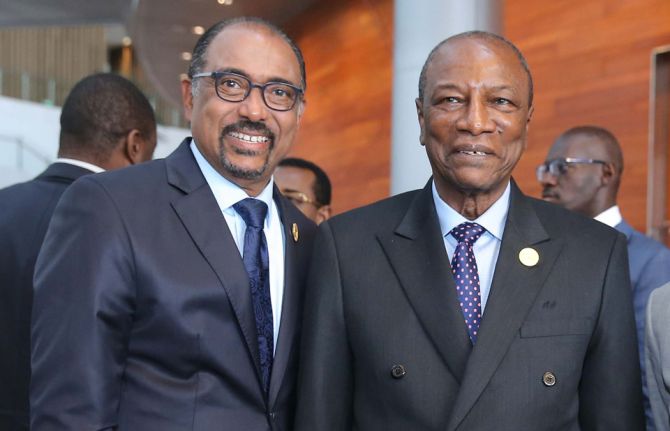
Press Statement
African Union endorses major new initiatives to end AIDS
04 July 2017 04 July 2017GENEVA, ADDIS ABABA, 3 July 2017—African heads of state have endorsed two major new initiatives to help end AIDS by 2030. The community health workers initiative aims to recruit, train and deploy 2 million community health workers across Africa by 2020. The western and central Africa catch-up plan aims to rapidly accelerate access to HIV treatment in the region and close the gap in access between African regions. The initiatives were endorsed at the AIDS Watch Africa Heads of State and Government Meeting, held on 3 July during the 29th African Union Summit in Addis Ababa, Ethiopia.
Western and central Africa catch-up plan
Under the leadership of countries and regional economic communities, and in collaboration with UNAIDS, the World Health Organization, Doctors Without Borders and other partners, the catch-up plan in western and central Africa, which started implementation in late 2016, seeks to dramatically accelerate the scale-up of HIV testing, prevention and treatment programmes, with the goal of putting the region on the Fast-Track to meet the 90–90–90 targets by December 2020.
While the world witnesses significant progress in responding to HIV, with 57% of all people living with HIV knowing their HIV status, 46% of all people living with HIV accessing treatment and 38% of all people living with HIV virally suppressed in 2015, the western and central Africa region lags behind, achieving only 36%, 28% and 12%, respectively, in 2015. The gap is considerable: 4.7 million people living with HIV are not receiving treatment, and 330 000 adults and children died from AIDS-related illnesses in 2015.
“We cannot accept a two-speed approach to ending AIDS in Africa,” said UNAIDS Executive Director Michel Sidibé. “To put western and central Africa on track to end AIDS, we must address stigma, discrimination and other challenges to an effective response, allocate funding to support the most effective strategies and implement delivery strategies that reach the communities most in need.”
The catch-up plan will aim to increase the number of people on treatment from 1.8 million to 2.9 million by mid-2018, giving an additional 1.2 million people, including 120 000 children, access to urgently needed treatment.
The first call for a catch-up plan for the region was made at the United Nations General Assembly High-Level Meeting on Ending AIDS in June 2016. Since then, at least 10 countries (Benin, Cameroon, the Central African Republic, Côte d’Ivoire, the Democratic Republic of the Congo, Guinea, Liberia, Nigeria, Senegal and Sierra Leone) have developed country operational plans deriving from the western and central Africa catch-up plan with a focus on ensuring the needed policy and structural changes.
Two million community health workers
The community health worker initiative aims to accelerate progress towards achieving the 90–90–90 targets by 2020—whereby 90% of all people living with HIV know their HIV status, 90% of people who know their HIV-positive status are accessing treatment and 90% of people on treatment have suppressed viral loads—and to lay the foundation for sustainable health systems. Championed by the President of Guinea and African Union Chair, Alpha Condé, the initiative seeks to confront the acute health workforce shortages across Africa and improve access to health services for the most marginalized populations, including people living in rural areas.
“Recruiting 2 million community health workers is a critical step towards achievement of the Africa-wide socioeconomic transformation envisioned in the African Union’s Agenda 63”, said Mr Condé. “Few tools have the ability of community health workers to drive progress across the entire breadth of the 2030 Agenda for Sustainable Development.”
Substantial evidence, from both Africa and elsewhere, demonstrates that well-trained, properly supervised community health workers provide an excellent quality of care and improve the efficiency and impact of health spending. Community health workers have helped devise some of the most effective service delivery strategies for HIV testing and treatment, and studies have also linked community-delivered services with increased rates of immunization, exclusive breastfeeding and malaria control coverage.
“Sustainable community health work is a matter of survival and development in Ethiopia, said Prime Minister of Ethiopia Hailemariam Desalegn. “My community health workers have made better health happen. Achieving universal health coverage is not possible without building community health systems.”
UNAIDS estimates that there are more than 1 million community health workers in Africa today, but most focus on a single health problem and are under-trained, unpaid or under-paid, and not well integrated in health systems. The new initiative endorsed by AIDS Watch Africa seeks to retrain existing community health workers, where feasible, and to recruit new health workers to reach the 2 million target.
“Few investments generate such a remarkable social and economic return as community health workers,” said Jeffrey Sachs, Director, Earth Institute, Columbia University. “Community health worker programmes are essentially self-sustaining, in that they avert illness, keep workers healthy and productive and contribute to economic growth and opportunity.”
While community health workers may hold the key in many settings to achieving the 90–90–90 targets, the benefits of this new initiative extend well beyond the AIDS response. The initiative will expedite gains across the health targets of Sustainable Development Goal 3, create new jobs that will strengthen local and national economies and offer new opportunities to young people. The new initiative is aligned with the World Health Organization’s Global Strategy on Human Resources for Health.
Start Free, Stay Free, AIDS Free
At the AIDS Watch Africa meeting, the participants also called on member states and development partners to support the African Union campaign to eliminate new HIV infections among children and keep mothers alive as part of the Start Free, Stay Free, AIDS Free collaborative framework.
“Complacency gives birth to regression of the gains made in reducing HIV prevalence, said, Yoweri Museveni, President of Uganda. “We in Uganda have rekindled the campaign to end AIDS; the science exists, as well as the medication. We can win this battle.”
AIDS Watch Africa is a statutory entity of the African Union with the specific mandate to lead advocacy, accountability and resource mobilization efforts to advance a robust African response to end AIDS, tuberculosis and malaria by 2030.
UNAIDS
The Joint United Nations Programme on HIV/AIDS (UNAIDS) leads and inspires the world to achieve its shared vision of zero new HIV infections, zero discrimination and zero AIDS-related deaths. UNAIDS unites the efforts of 11 UN organizations—UNHCR, UNICEF, WFP, UNDP, UNFPA, UNODC, UN Women, ILO, UNESCO, WHO and the World Bank—and works closely with global and national partners towards ending the AIDS epidemic by 2030 as part of the Sustainable Development Goals. Learn more at unaids.org and connect with us on Facebook, Twitter, Instagram and YouTube.
Press centre
Download the printable version (PDF)

